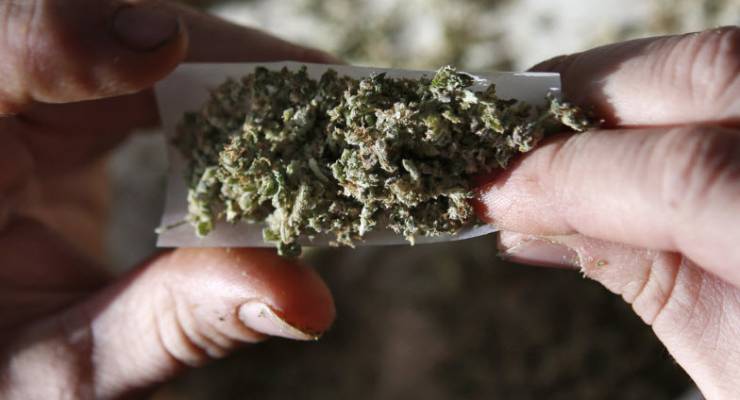
Evidence from the United States suggests the Turnbull government’s proposal to crack down on people receiving Newstart and Youth Allowance payments by subjecting them to regular drug tests will be ineffective and costly.
In last night’s federal budget, the government announced a two-year drug testing trial for 5000 people on Newstart or Youth Allowance. Those who fail the test will be limited in how much cash they can access from their welfare payments, and those who fail a subsequent test will be required to seek medical treatment.
The idea had been floated by ex-PM Tony Abbott and his then-social services minister Kevin Andrews but was quickly dropped. Where the scheme has been tried elsewhere in the world, it has not turned up as many drug users as might have been expected. ThinkProgress in 2015 had a look at seven similar programs in states across the United States, and found that while the national drug use rate was 9.7%, the actual positive results for those seeking welfare in the states was mostly lower than 1%, despite collectively spending more than $1 million on the testing. In New Zealand, data from 2015 showed that of the 8001 tests conducted for $1 million, just 22 people tested positive.
The government has said it will “profile” welfare recipients to determine the high risk (without providing detail on exactly how). The cost of the trial was not revealed in the budget due to commercial-in-confidence reasons, and there was no evidence that the government had analysed the potential effectiveness of introducing such a program. Last night, Treasurer Scott Morrison said that, just like experimenting teenagers, the government tries things, and if it doesn’t work, it will stop doing it.
[Drug testing to weed out dole blunters]
Prime Minister Malcolm Turnbull defended the program this morning, denying a suggestion on ABC’s RN Breakfast that a random drug test would not test for drug dependency and stating that the government was “doing them a favour” by testing for drugs.
“Substance abuse and drug dependency have a high correlation with unemployment. The lesson is: don’t do drugs.”
On ABC’s News Breakfast, Turnbull expressed dismay that the proposal had been met with opposition this morning.
“This is helping people. I am really disappointed by the criticism of that. I would have thought more people would be saying ‘Why haven’t you been doing more of it years ago?'”
The day after a long night of budget night parties in Canberra, Independent Senator Jacqui Lambie said she supported the idea, but she said it should be extended to all people paid by taxpayers, including politicians, staffers and public servants rocking up dusty to Parliament on a Wednesday morning.
“It would be nice to see Parliament leading by example and do drug testing at their own doors. You know what? They’re paid by the taxpayer, public servants and politicians, they could be doing random drug tests at the doors and leading by example and that way they won’t get so much flak. I think it’s heading in the right direction.”
A staffer for Malcolm Turnbull, when he was the communications minister in 2015, was charged with drug possession after he was found carrying a tab of what appeared to be LSD and a bag containing methylamphetamine in a Canberra Airport bathroom on his way out after budget week. He quit his government job and pleaded guilty, but he escaped a conviction and received just a $73 bill for court costs.








Of course dole bludgers should be drug tested. If Australia repeats the New Zealand experience, with 22 positive tests costing around $50,000 each, then it would save money with dole cheats being stripped of the exorbitant unemployment benefits of over $50,000 a year.
The unemployed, in particular the young unemployed, need to learn that they’re scum.
If anything, it will will make us rich old white men happy at the thought that the young continue to be persecutely relentlessly.
Sorry about the typo’ in the last sentence. My nipples were exploding with such delight at the thought of drug testing the unemployed that I put in an adverb instead of a verb.
Yeah, delight exploding nips will do that. You also duplicated “will” but none of uS R injun to tipows, KO?
lols!!
Sales of diuretics set to skyrocket if this comes in. Ask a miner.
True enough… the crystal meth problem was always exploding in the mining towns where everybody was fully employed. This is all about demonizing the vulnerable.
Why does the LNP have the hates on the young and the poor so much?
I believe this initiative is an integral part of the new Liberal/IPA strategy, ‘Work Sets Your Free’.
According to Joyce you shouldn’t turn up at work plastered, so the way to prevent this is by drug testing people who don’t have a job. I can’t wait for the first photo of pollies attending a boozy Canberra lunch, on a day that Parliament’s sitting, to turn up on social media. After all, politicians are welfare recipients.
Random drug and alcohol testing for welfare recipients, has merit; what has more merit is random drug and alcohol testing for politicians as well, they should lead the way. Some would like to see Morrison, Barnyard, rAbbott, Andrews, Hastie, Pyne, etc. be piss tested each day.
I doubt that there about big enough vats for the piss they are full of.
Given that the inHuman Hunchline was at the 2016 Mardigrass and took part in (one of) the many discussions of the iniquity, never mind inequity, of the saliva testing for drugs of “certain, profiled” drivers, ie young, tinted or hirsute, he knows full well that the test does not show impairment.
As the NSW Police handbook shows quite clearly, only the presence of isomers of certain drugs can be detected but, as the unlamented Troy Grant admitted when Police Minister under Baird, “doesn’t matter, cannabis is illegal any way”.
It will include alcohol? It should.